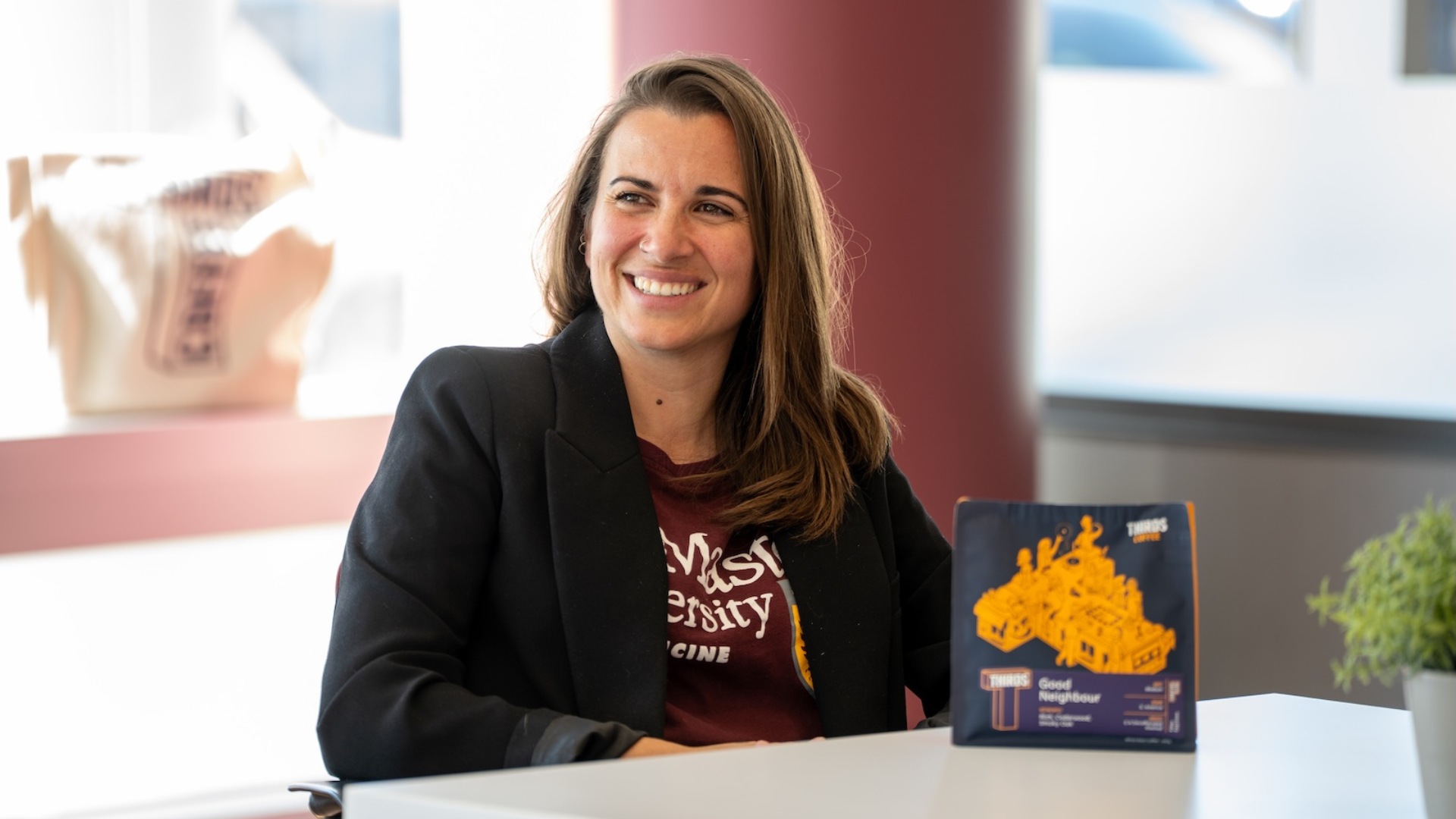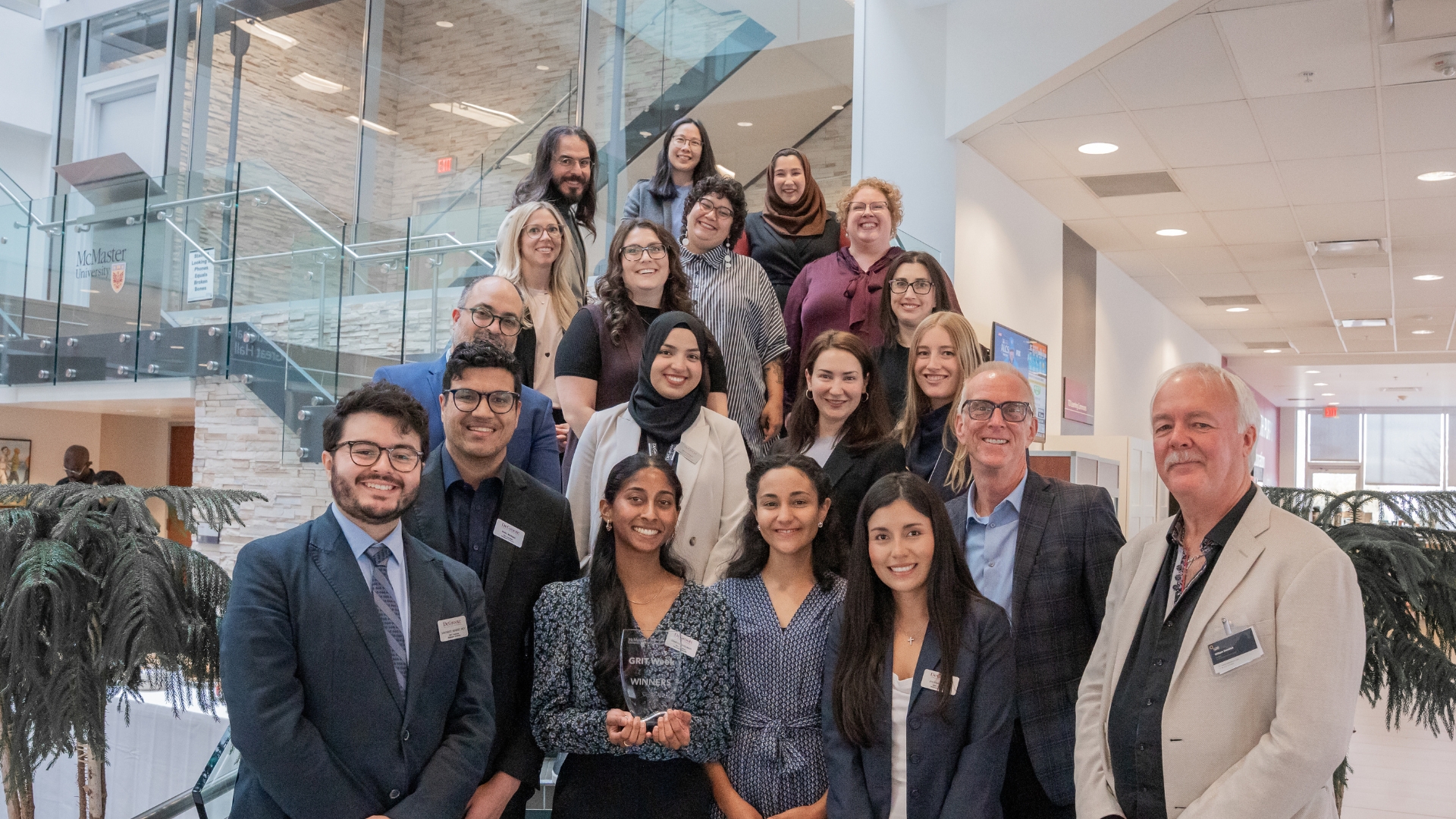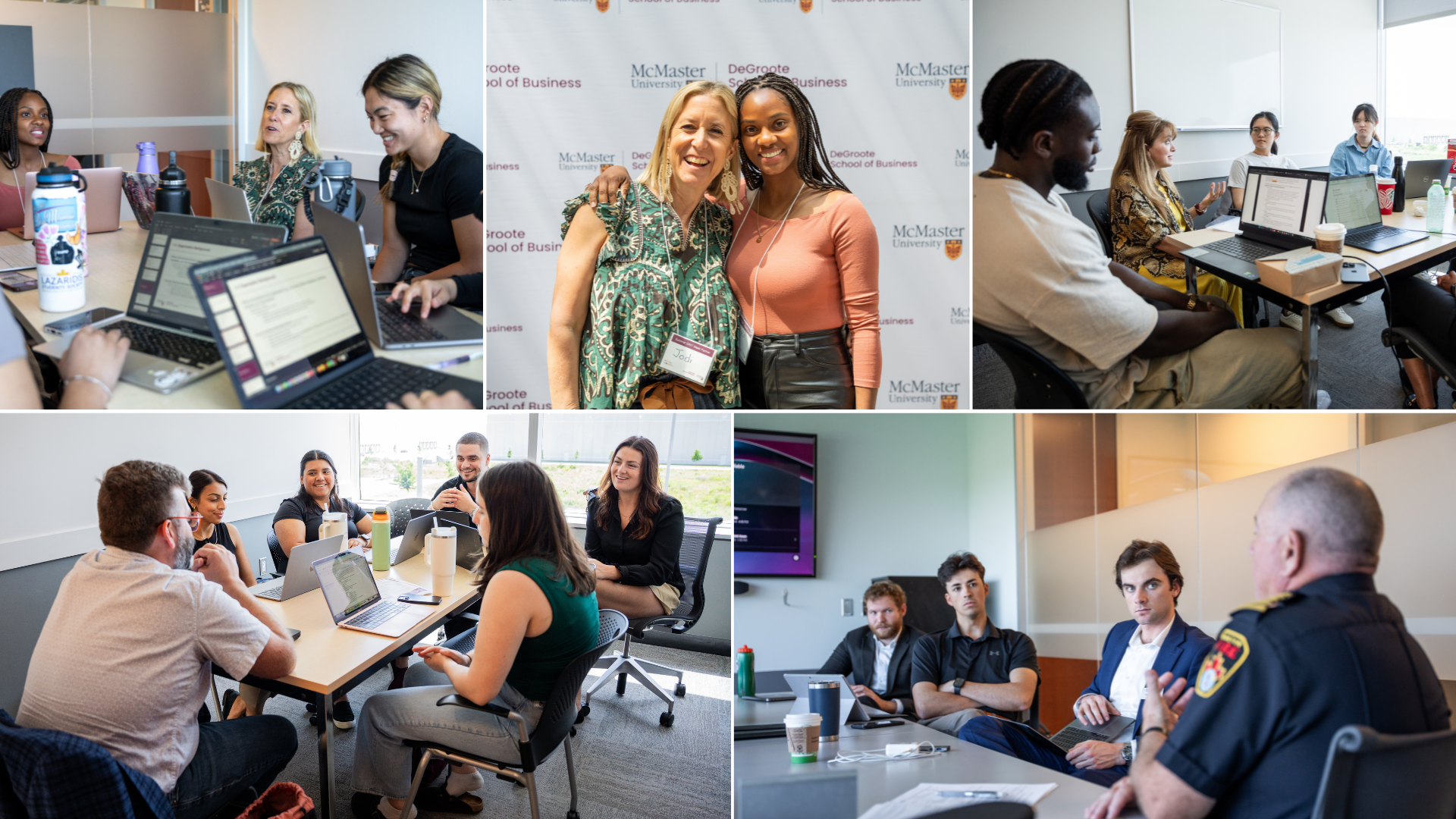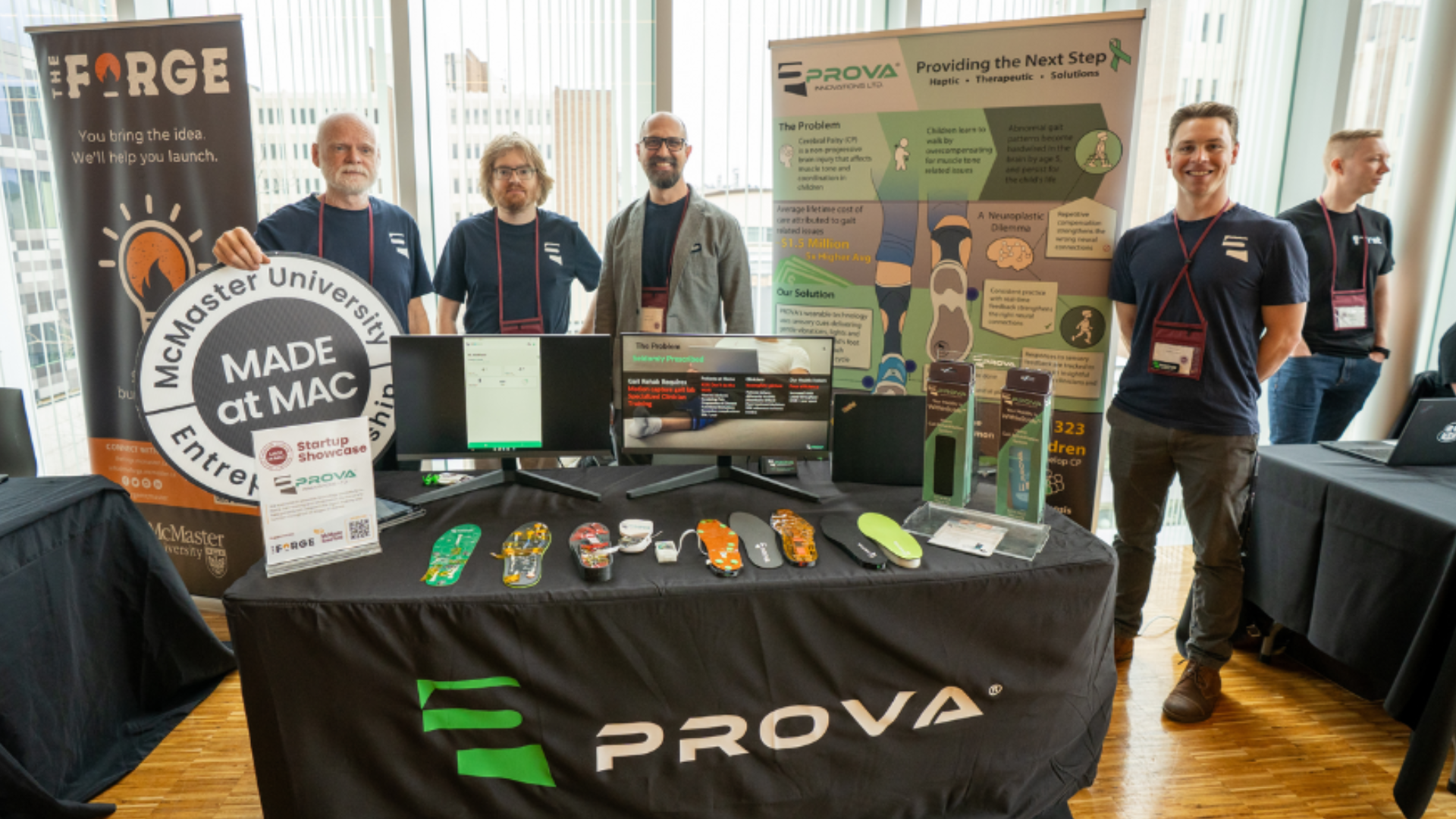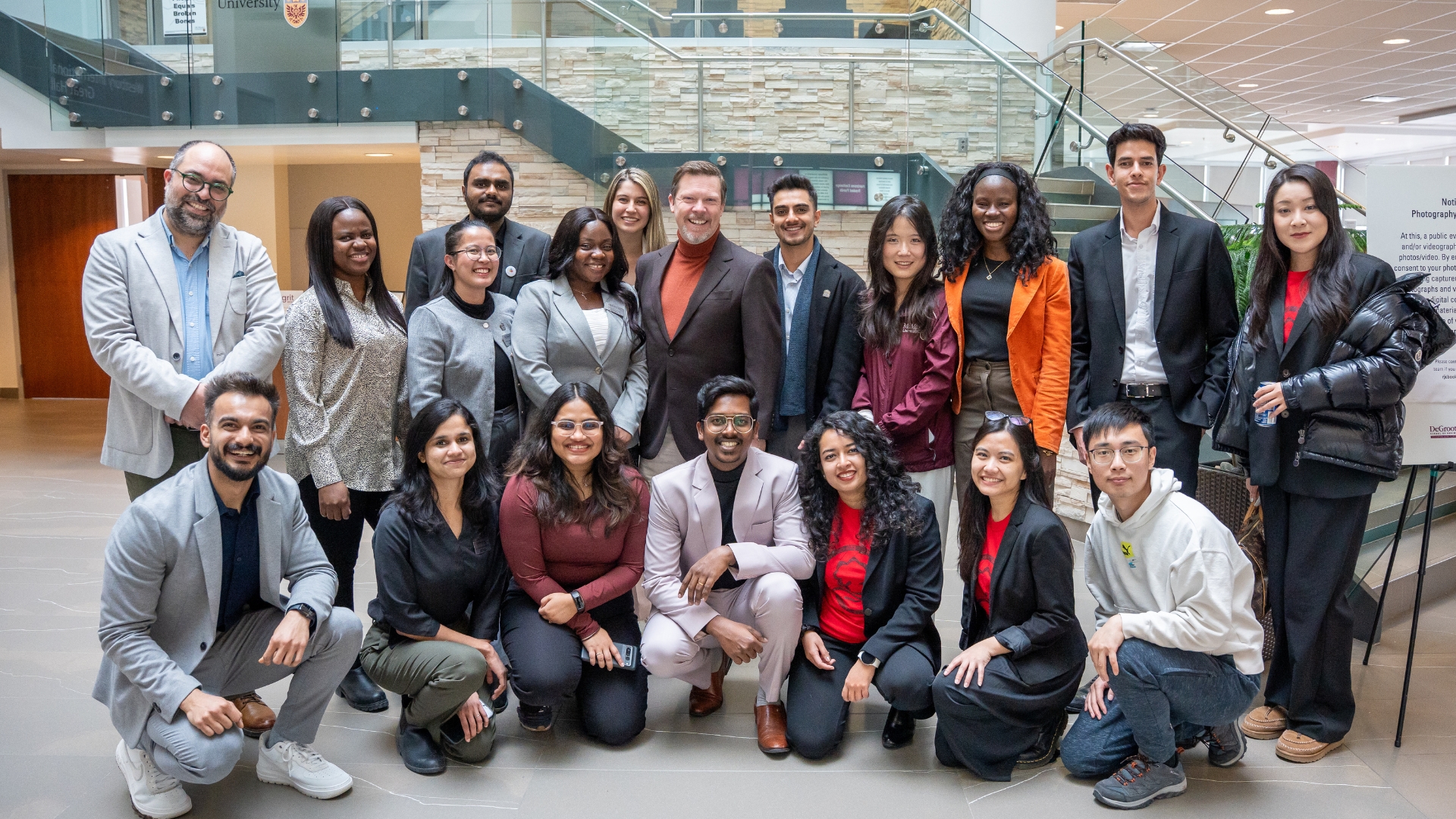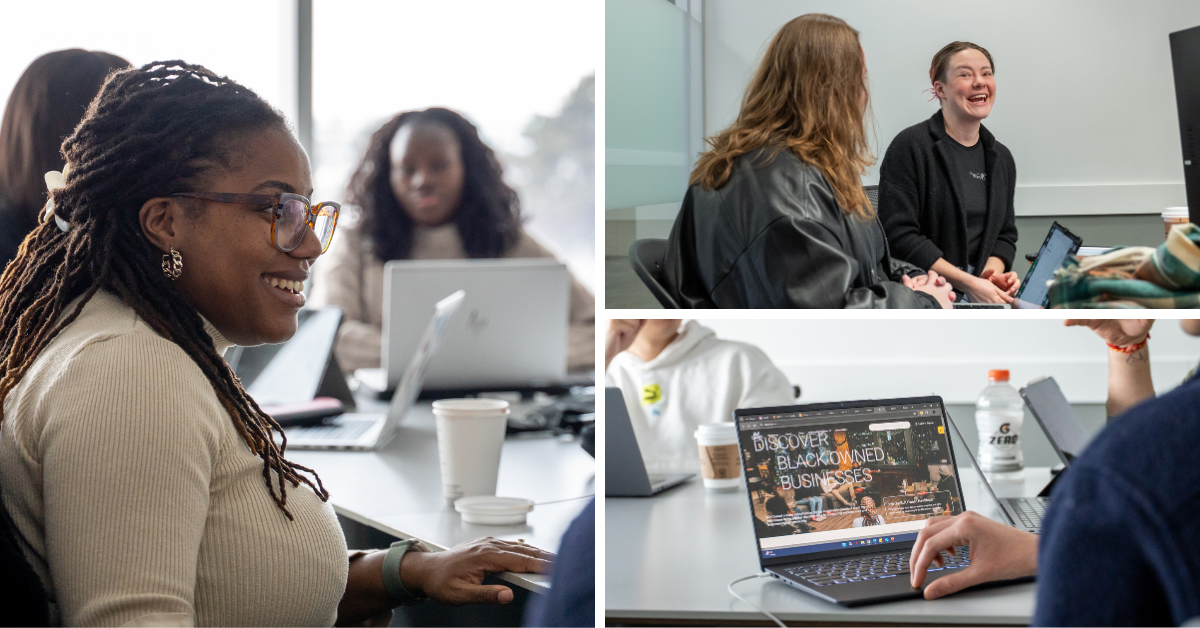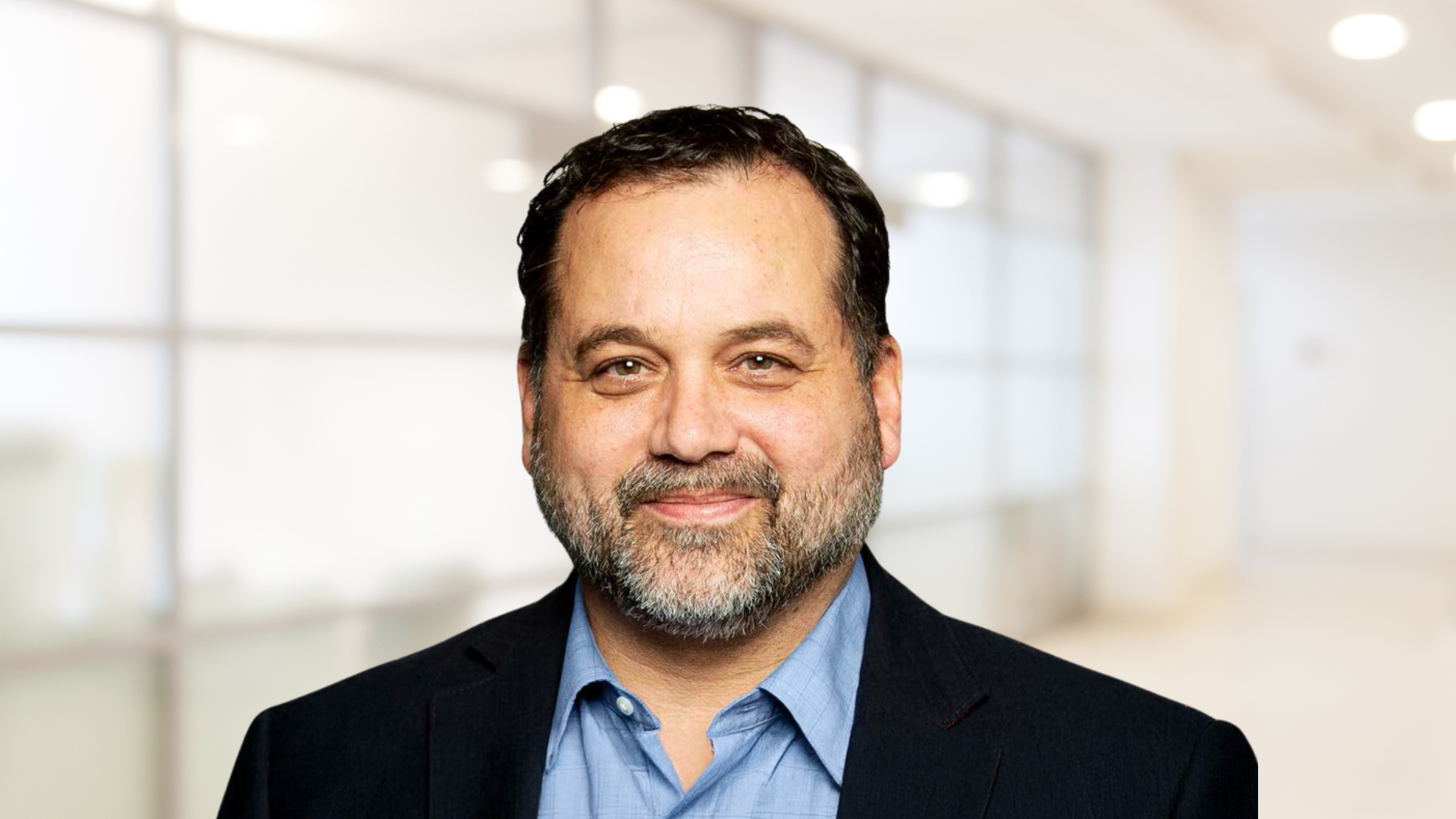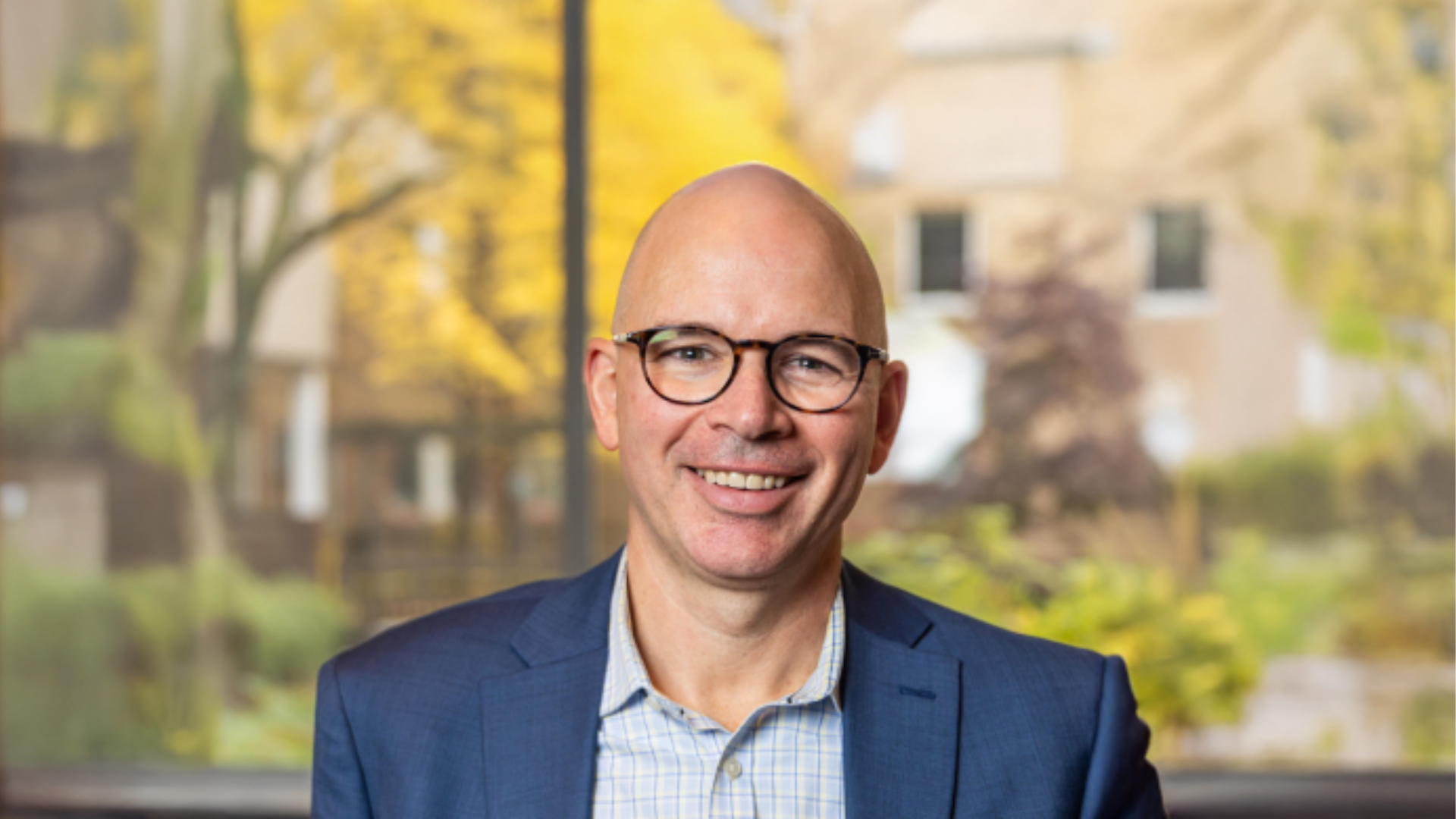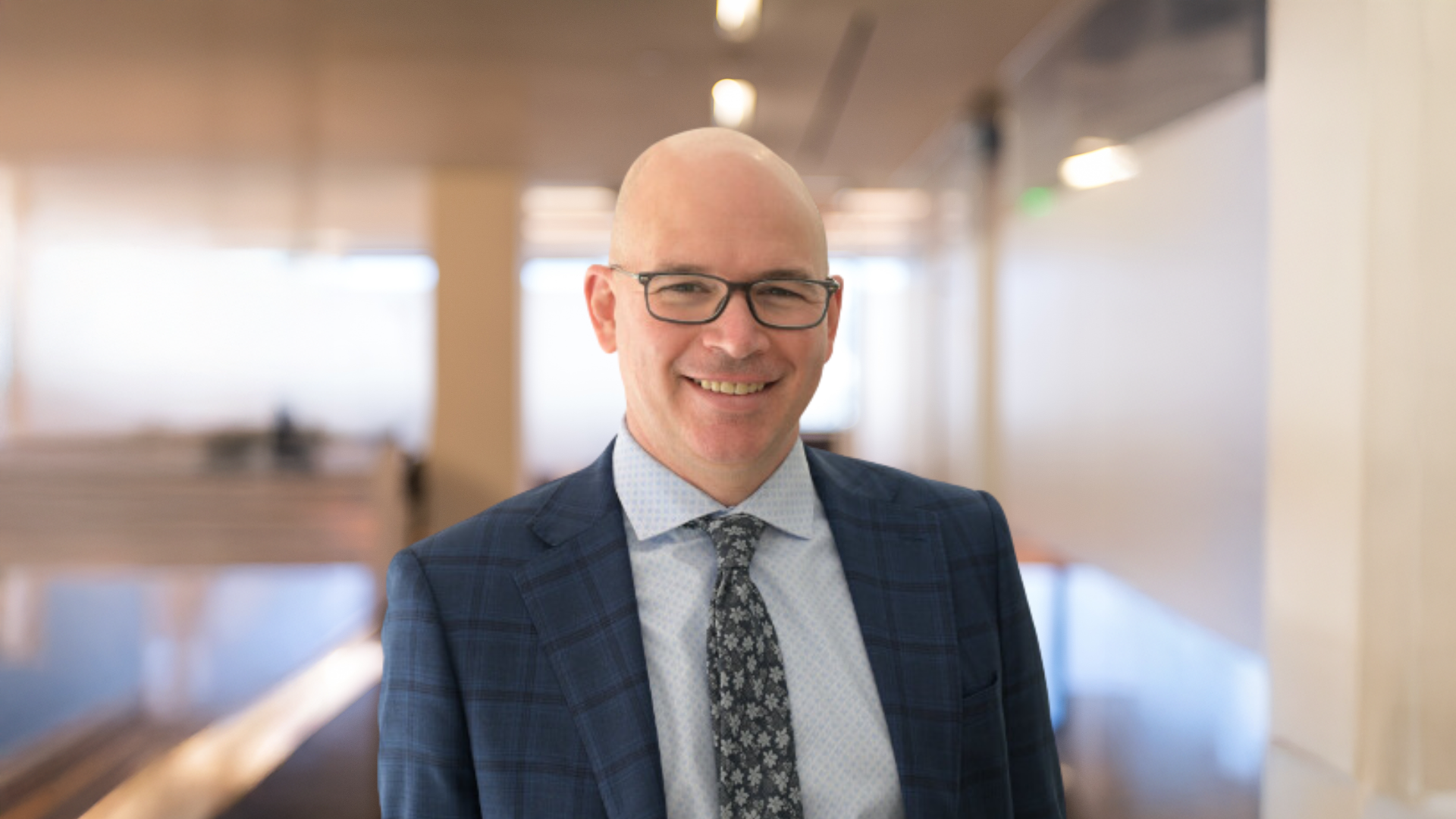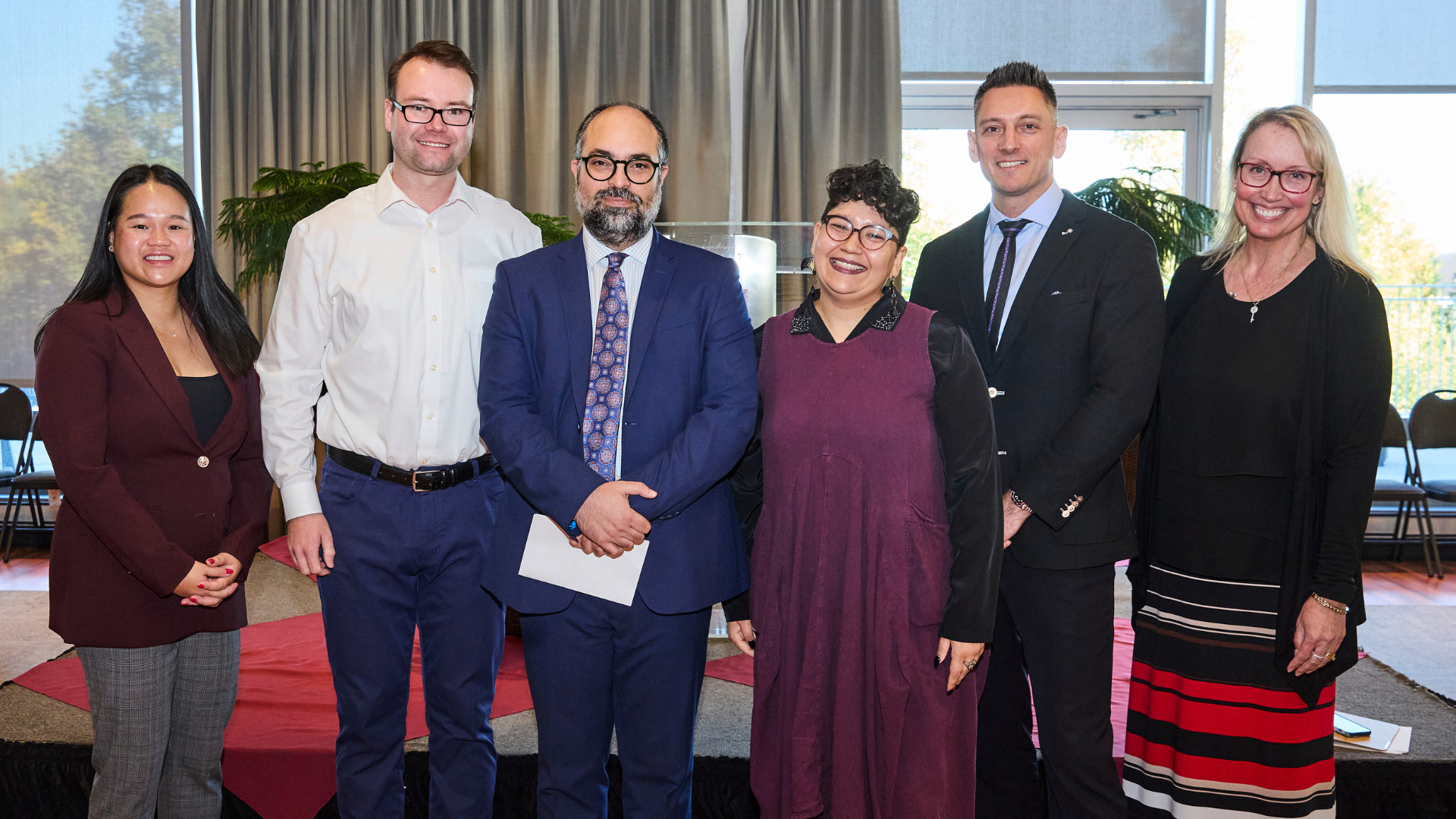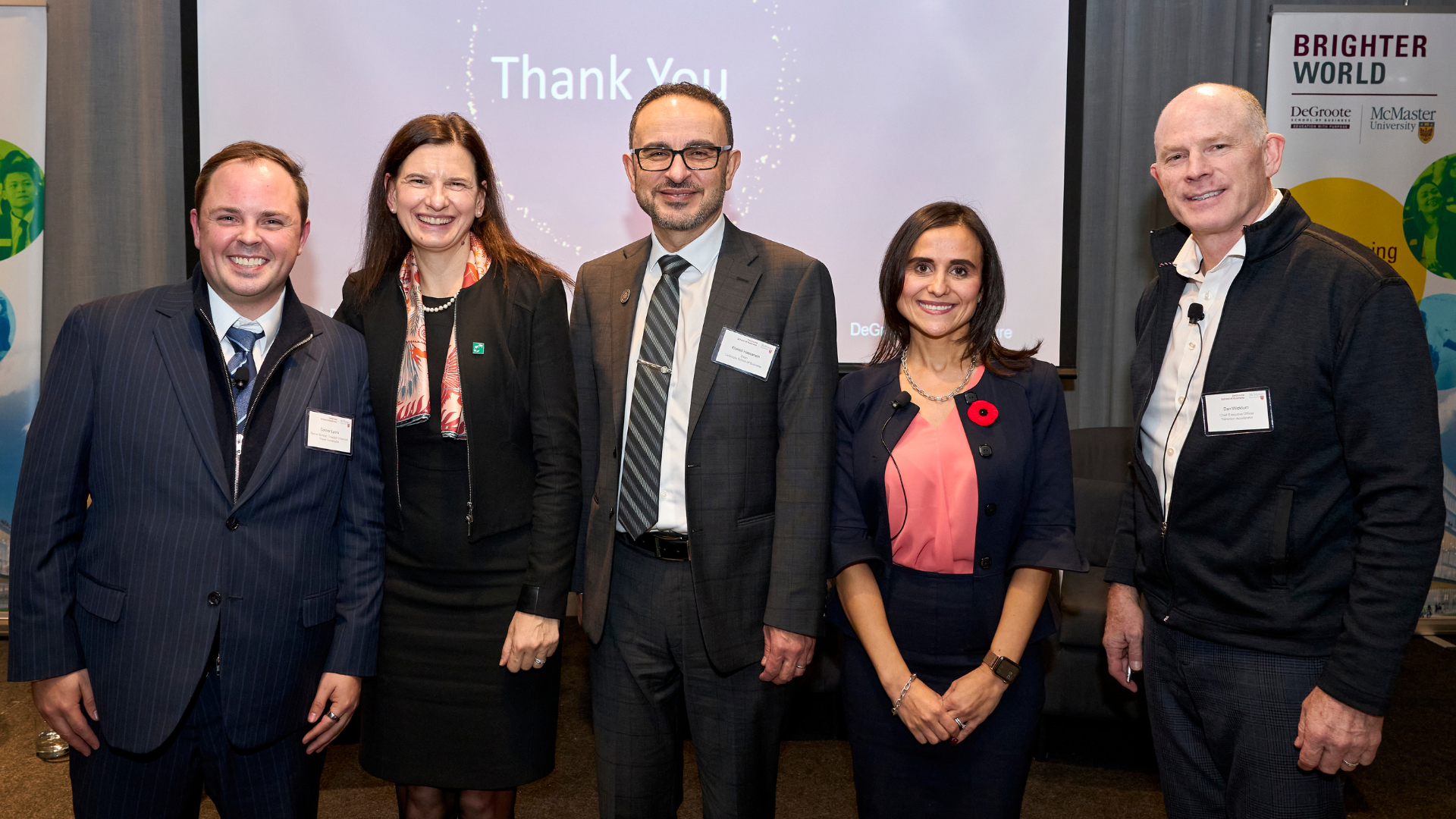Improving the flight connection experience for business travellers
October 9, 2019 ·
Contributed by: Izabela Szydlo, DeGroote Writer
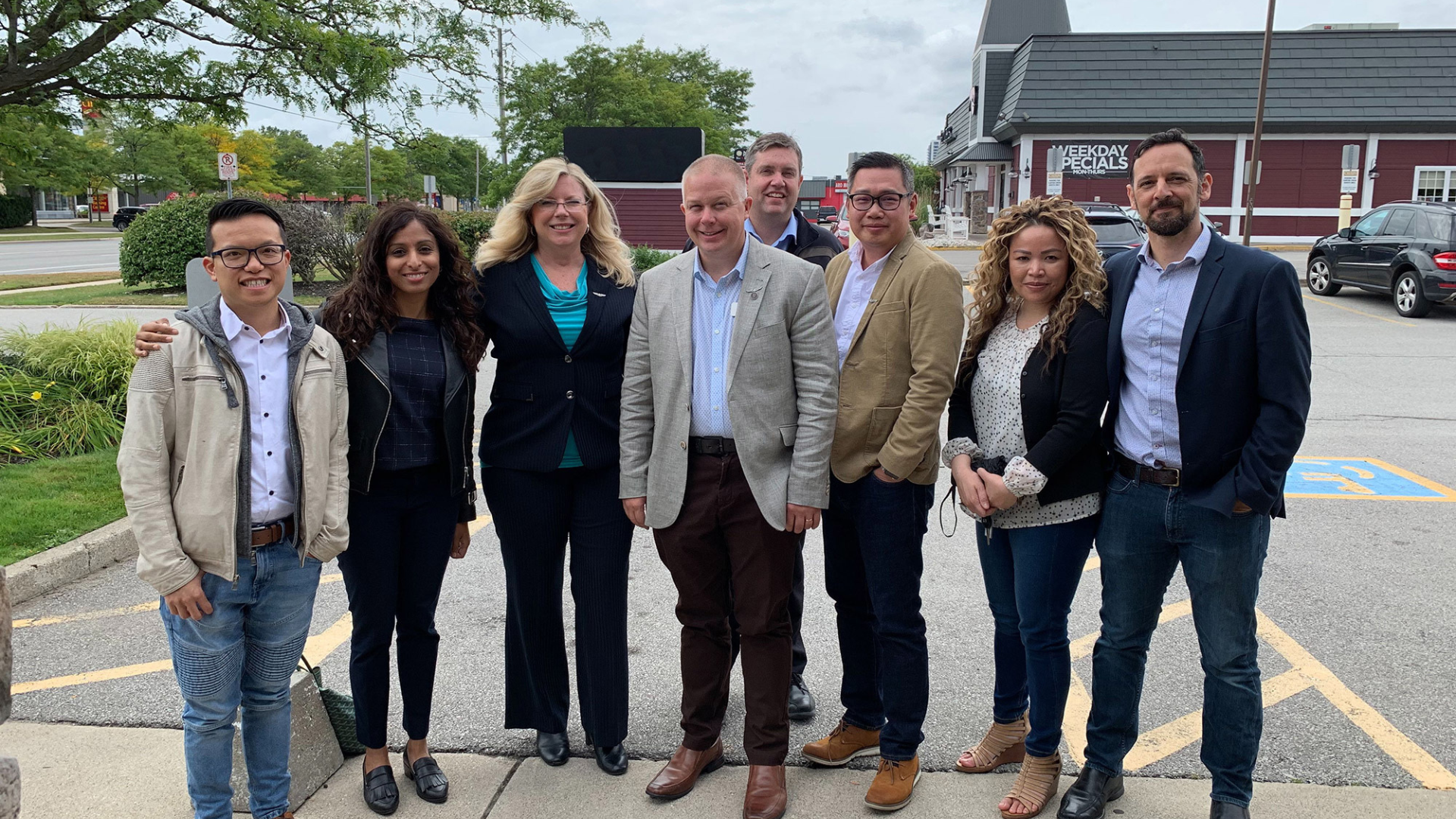
With organizations increasingly integrating digital technology to deliver value to customers, digital transformation is rapidly changing business processes and customer experiences. The airline industry is no exception. So, when WestJet had the opportunity to challenge DeGroote’s Executive Master of Business Administration (EMBA) students — who specialize in digital transformation — to solve a challenge it faced, the company hoped to receive some innovative ideas.
DeGroote students, says the head of mobile in WestJet’s Digital and Innovation department, did not disappoint.
“Because the EMBA students came from several professional backgrounds, there was a huge variety in their experience and they all had really valuable perspectives, which was amazing,” says James Derdall, who worked with the team of five students for whom WestJet served as a program-long capstone project, and is responsible for growing WestJet’s co-op partnerships with leading universities across Canada. “I think what surprised me most was their level of expertise and insightfulness. The students asked a lot of great questions and the recommendations they came up with were very practical.”
Delivered over the course of 14 months and built around four residential modules, DeGroote’s EMBA program is the world’s first EMBA to emphasize managing digital systems and using those systems to make data-driven decisions, lead complex and diverse teams in digital environments, and recruit exciting new talent.
Sanjay Dhebar is a DeGroote adjunct faculty member in the EMBA program and lead instructor in the capstone course. He says the capstone project, which seeks to address real digital transformation issues at various partner companies, serves a number of purposes.
“This is an opportunity for students to experience what it’s like to do a consulting project and it is also an application of their learning,” he says. “Because students may not always be able to apply what they learn in their classes to their own work, this project allows them to do that while experiencing the team dynamic. The teams that perform the best are the ones that do no think outside the box, rather create a new box via innovative idea. It’s also helps to have a partner as engaged as WestJet, which was also open to the new way we are teaching in the EMBA program.”
With WestJet currently redesigning its mobile app, Derdall says it was a unique time to engage DeGroote’s EMBA students, who were challenged to find a way to improve the flight connection experience of business travellers. In total, students spent more than 100 hours working with Derdall and his team, researching, conducting ideation sessions, problem solving, and eventually presenting their research and recommendation last month.
“Without giving away too much, the students took a great approach, examining the issue from a health and wellness perspective,” says Derdall. “Air travel wears people out so they examined how we can incorporate and improve people’s well-being. I thought that was quite insightful and forward thinking because that’s where the industry is going — trying to reduce the friction and stress for our guests.”
Adds Dhebar, “In the last seven years, more advancements have been made in technology than in our entire lifespan, so our program and its capstone forces leaders working in a range of sectors to become forward-thinking. It’s a win-win for students and for the organizations.”
But how does Dhebar, who grades the students’ capstone report, determine whether each group has achieved its objective? He says it’s a combination of examining whether students took the time to learn everything about the particular industry in which they worked, the originality and creativity of their idea and/or recommendation, whether that idea has a digital component, whether it is impactful to the organization and can be implemented, and whether it can be measured for success.
Not only did WestJet’s student team succeed, but Derdall says the partnership also resulted in benefits that go well beyond one particular project.
“The high value we got was the research and recommendations that we could try in the market, but it was also in growing our connections and presence to an institution in eastern Canada that’s a pipeline for us to bring additional talent to our team,” he says. “I think everyone involved in the partnership walked away thinking about digital transformation differently than when they started.
“The world is changing fast and industries have to learn to adapt in the digital space, and the feedback I got from the students and realized personally is that companies really need to find new ways to think about problems differently. There’s a lot of start-up companies coming and disrupting so it’s great that DeGroote is focusing on such a relevant issue. Moving forward, we want to do this again and see what other students come up with.”

